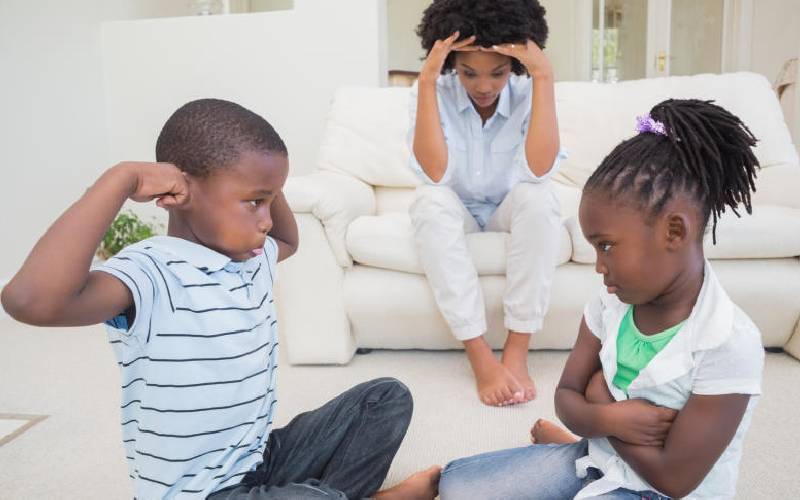Here’s the big question: What is the best way to discipline a toddler? Millennial can attest to the fact that African parents believe so much in spanking their children. There’s a popular adage that says, “Spare the rod and spoil the child.” Most parents still believe that punishing their children is the best way to correct them. What they are basically saying is that in order to correct a child, one should basically inflict pain on the child. By doing this, you are just causing the child emotional harm, as it can cause the child to feel fear, anxiety, and shame. This can also damage the parent-child relationship and make it difficult for the child to trust the parent.

Spanking a child does not teach them effective problem-solving skills or help them learn how to control their behavior. Instead, it teaches them that violence is an acceptable way to resolve conflicts, which can lead to more aggressive behavior.
For most African parents, the complete toddler training kit is a combination of eye cues and flogging. I can remember very well what my mother did to stop me from collecting things from strangers. She started by test-running her koboko on my bum, then gave me a strict warning.
After that, whenever a stranger offered me anything, I turned and looked at my mom. I can still recall those combinations of a dubious smile and a mischievous eye cue. The dubious smile is telling the stranger, “Thanks so much for the gift,” while the mischievous eye cue is telling me, “You are a big toast if you take that gift.”
I’m not disputing that spanking works; many of us were raised in this manner and turned out fine. But if you look at it deeply, you will notice that a lot of the disconnection and bad relationship we have with our parents as adults often stem from these little actions we neglect. I’m sure most of us couldn’t tell our parents certain things when we were growing up. Our parents should be the first point of contact for any problem we faced in life as kids. Most parents are looking for the easy way out when raising children, so they just spank, without actually evaluating the emotional damage it causes to the child. Yes, the child may do well in life, but what about the harm done to your relationship with your child?
The sad part is that this creates a vicious cycle without anyone noticing. Your children will one day grow up and become parents themselves, and if they didn’t notice and break that cycle on time, they will still approach parenting that way. You might argue that, “Well, I was spanked, but I still love my parents.” Well, as adults, we will likely forgive and forget things done to us by our parents, ultimately loving them because they gave birth to us. What can never be repaired is the parent-child intimate relationship. I used the word “intimate” because there are levels to relationships. If you see your parents as your confidants, you can totally confide in them even in the most awkward situations, then you have a good relationship with your parents.
The way forward to creating a positive parent-child relationship is for parents to focus more on positive discipline and communication. This can be done by rewarding good behavior and punishing bad behavior in positive ways. Always ensure to talk to your children, listen to their grievances and complaints and be their confidant. It also helps to train yourself to be patient and practice self-control.
It takes effort, but breaking this cycle is what parents must do in order to have a positive and healthy relationship with their children. The earlier parents start break this cycle of spanking, the better for them and their children.
Ultimately, the goal is to create an environment where discipline is rooted in love, respect, and understanding. By doing this, you can foster a concern and care for your child, without resorting to physical punishment.



